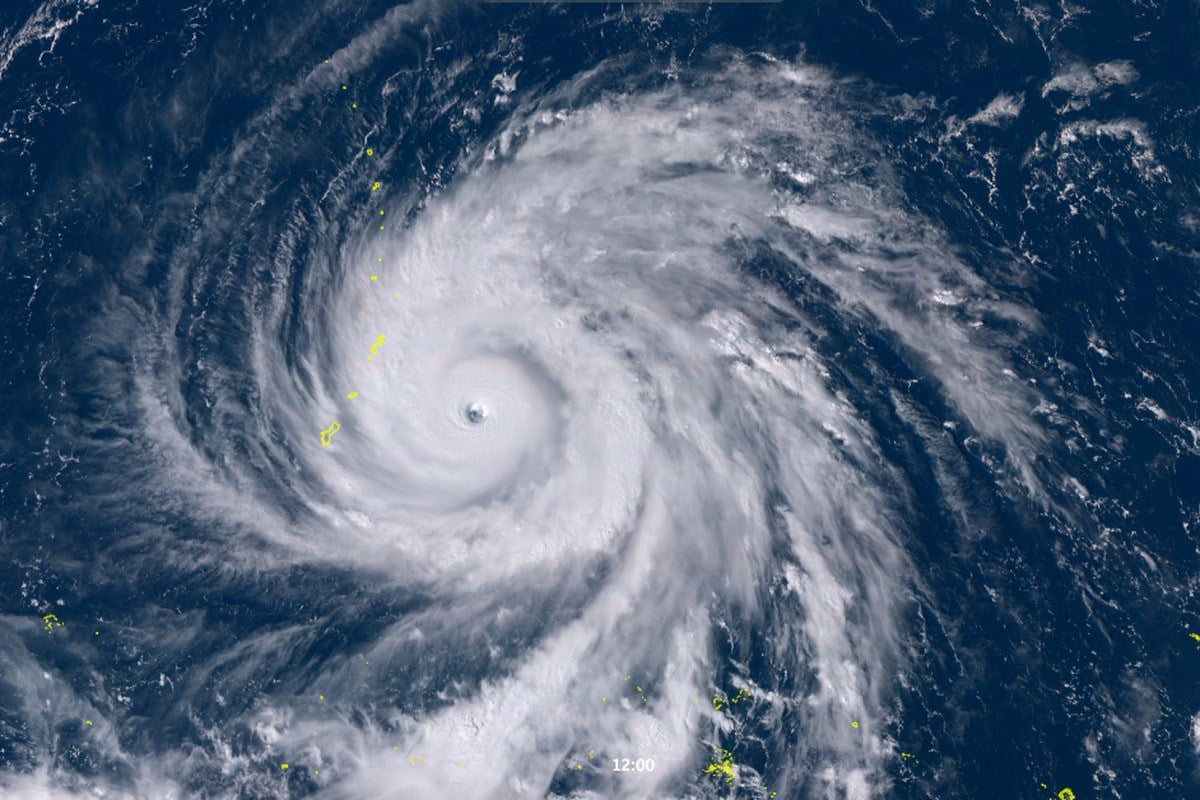Imperial Pacific International Saipan Casino
- Imperial Pacific Hotel And Casino Saipan
- Imperial Pacific Saipan Casino
- Imperial Pacific International Saipan Casinos
A rendering of Imperial Pacific’s Grand Mariana Casino Hotel & Resort
U.S. federal prosecutors indicted three people involved with Imperial Pacific International Holdings Ltd.’s controversial casino project in Saipan for employing undocumented workers, making illegal money transfers, and participating in a criminal conspiracy – adding to the legal troubles connected to the Hong Kong operator.
Prosecutors allege the trio conspired to illegally hire large numbers of Chinese laborers to work on the casino site, “instructing prospective hires to lie to immigration inspectors” on arrival by claiming they were tourists. The defendants – Liwen Wu, Jianmin Xu, and Yan Shi – were employed either by Imperial Pacific or MCC International Saipan Ltd., a Chinese construction company that was helping to build a massive gaming resort in Saipan, a remote U.S. territory in the middle of the Pacific Ocean.
The indictment includes a conspiracy charge under the Racketeer Influenced and Corrupt Organizations Act, a powerful legal tool used in the past against Mafia families in New York as well as the Hells Angels motorcycle club.
The charges unsealed this week are the latest legal challenge confronting Imperial Pacific’s business in Saipan, which was for a time one of the highest-grossing casinos in the world — despite operating first from a nondescript storefront and then a half-finished construction site. Imperial Pacific and Metallurgical Corp. of China Ltd., which is one of China’s biggest state-owned construction businesses and owned the subsidiary unit in Saipan, are not accused of wrongdoing in the legal filing.
All three defendants are Chinese nationals, and the Department of Justice said in a statement that they currently reside outside the U.S. At least one of the named individuals no longer works for Imperial, according to the company.
A lawyer for Imperial Pacific said he was unable to comment on the company’s behalf, while listed numbers for the company are no longer in use or have been disconnected. MCC didn’t respond to requests for comment.
In November, federal agents searched Imperial Pacific’s local offices as well as the home of Ralph Torres, Saipan’s governor and a longtime backer of the casino. At the time, Torres acknowledged the FBI searches and denied any wrongdoing.
Last year, Imperial Pacific agreed to pay $3 million to resolve claims it didn’t pay construction workers minimum wage and overtime. In 2017, federal prosecutors charged MCC employees, as well as other Chinese nationals involved with the project, with violations relating to the employment of unauthorized workers. Some pleaded guilty.
Imperial Pacific said one individual indicted in the latest case was a non-managerial employee of the group who left in 2017, according to an Aug. 5 statement to the Hong Kong stock exchange. In a separate court filing to stay a civil case, attorneys for the company described Wu and Xu as Imperial Pacific executives.
Imperial Pacific has attracted significant attention in the gaming world and beyond since it began operations in Saipan in 2015. At one point the company, which is controlled by Chinese businesswoman Cui Lijie, counted former directors of the Federal Bureau of Investigation and Central Intelligence Agency, as well as the former governors of New York and Pennsylvania, among its directors or advisers.
The casino, which is located on an island with almost no modern tourist infrastructure and is more than three hours’ flight from any major city, was turning over more per-table bets at its peak than the glitziest facilities in Las Vegas and Macau.
But betting volumes have declined precipitously since then, and Imperial Pacific’s market capitalization, which topped $8 billion at its peak in 2015, has plummeted to about $184 million today. The company’s stock closed at HK$0.01 a share Friday. Matthew Campbell, Bloomberg
In this 2018 file photo, Chinese laborers are seen gathering in front of their living quarters before a protest about allegedly missing wages, in Saipan
- Imperial Pacific is set to offer a high-yield bond to investors in order to fund the construction of the Imperial Pacific Resort and Hotel on Saipan. The pricing of the notes, including the aggregate principal amount, the offer price and the interest rate have yet to be determined, said the company in a filing to the Hong Kong Stock Exchange.
- Saipan is the largest of the Northern Marianas Islands, a commonwealth of the United States in the Pacific Ocean. Imperial Pacific International Holdings, a well-known casino group from Hong Kong, began planning a major casino development on Saipan in 2014. The company already operates the sole casino on the island. In the first half of 2018.
Unprecedented November 7 US Federal Bureau of Investigation raids on the Saipan office of the Hong Kong-listed gaming company Imperial Pacific International Holdings and the office of Governor Ralph Torres have put a shadow over the role of the island as a gambling haven for cash-flush Chinese high rollers.
Imperial Pacific International Holdings is a casino company headquartered in Hong Kong. The company owns a mega-resort casino project in Saipan that has been struggling with a myriad of issues that delayed its completion. FBI raids on the island of Saipan of the offices of Ralph Torres, governor of the Northern Mariana Islands, and Imperial Pacific International Holdings appear to be linked to possible bribery, money laundering and improper political donations, according to a search warrant seen by Asia Sentinel. Chinese executives of Imperial Pacific International and MCC International Saipan, contracted to build a large hotel and casino in Saipan, face multiple criminal charges in federal court, which.
Saipan, a tiny island about double the size of Manhattan, became a US territory after a 45-day battle between US and Japanese forces during World War II that took the lives of 50,000 soldiers and civilians on both sides. It has become a visa-free destination for Chinese gamblers far from the prying eyes of authorities. According to a 2016 Forbes report, each VIP table in Saipan is generating a daily average of US$5.6 million in bets, four times Macau's average during its high-roller heyday. Imperial Pacific estimated at the time that each of its 100-odd VIP visitors bet an average of US$27 million.
“The main significance is that as the FBI has been investigating Imperial Pacific for some time, they have possibly found some serious irregularities in past dealings,” said Eric Coskun, director of casino projects at IGamiX, a Macau gaming consultancy.
This is the first time the authorities have raided both the Imperial Pacific offices and the office of the governor of the Northern Mariana Islands, a US commonwealth that covers 14 islands including Guam. The FBI also raided other facilities including a local law firm Torres Brothers, according to local media reports. Torres previously worked as a lawyer at Torres Brothers, which he owns along with his brother Jack.
The Hong Kong-listed firm announced on November 7 that its office in Saipan “assisted in an investigation at the request of local enforcement authorities,” and provided information and documentation to the authorities. Imperial Pacific said the investigation has not affected its operations. Governor Torres’ office confirmed on the same day that FBI investigators searched the office. In a statement, Torres said he was giving the “fullest cooperation” to the investigation.
The FBI has not given reasons for its investigations. Imperial Pacific has long been linked to the territory’s governor in various ways including land sales, said Dane Chamorro, a Singapore-based senior partner at Control Risks, an international consultancy. For instance, Imperial Pacific announced on October 7 it had acquired 50 percent of two pieces of land with a total area of 129,687 square meters for US$23.65 million.
In August 2014 when Eulogia Inos was the territory’s governor, Imperial Pacific gained a 25-year license to build and operate a casino. Imperial Pacific pays US$15 million per year for the gaming license and no gambling taxes.
“This kind of deal had never been seen before in the entire Asia Pacific region,” Coskun said.
The company has the sole license to operate the only full-fledged casino in Saipan and is one of the biggest taxpayers in the territory. Recent huge losses by Imperial Pacific have had a drastic impact on Saipan’s economy, prompting the government to implement austerity measures, Coskun said.
In the first half of this year, Imperial Pacific suffered a net loss of HK$1.88 billion (US$240 million) compared to a net profit of HK$79 million in the first half of last year. The company’s revenue plunged 81.5 percent year-on-year to HK$399 million in the first half of this year. Most of Imperial Pacific’s revenue came from the VIP gaming sector, which fell 87.5 percent year-on-year to HK$254.7 million in the first half of this year.
Imperial Pacific Hotel And Casino Saipan

Although most or all VIP gamblers at Imperial Pacific’s casino in Saipan come from mainland China, it has also become an attraction for Filipino and other high-rollers. For example, Liu Lirong, founder of Gionee, a Chinese smartphone maker, disclosed he lost “a bit more than one billion yuan (US$142.7 million)” at Imperial Pacific’s casino. In an interview in November 2018 with the Securities Times, a Chinese newspaper, Liu admitted he might have used company assets to gamble at the casino.
“The dollar volumes cleared by Imperial Pacific on any given day were routinely multiples of what a large Macau casino would generate,” Chamorro said. That is an obvious red flag, raising the question whether large sums were laundered, which has been a focus of regulators and investigators for some time, he added.
The FBI raids and investigations throw into question a US$500 million loan from a Japanese company GCM. On May 15, Imperial Pacific announced GCM had agreed to lend US$500 million to Imperial Pacific’s integrated resort, of which at least US$100 million has been supplied. GCM did not reply to questions.
Imperial Pacific Saipan Casino


“Any company wishing to invest in offshore gaming in essentially unregulated jurisdictions like Saipan needs to be extremely cautious, as these facilities tend to attract large sums of black money,” said Chamorro.
Although there is no proof of money laundering in Imperial Pacific’s casino, Saipan has a history of money laundering. Bruce Aitken, an American expatriate in Hong Kong, wrote a book, “The Cleaner,” describing his experience laundering money through Saipan and Hong Kong during the 1980s.
America's overseas territories including Saipan are generally badly run places from a governance perspective, Chamorro added.
Construction of Imperial Pacific’s integrated resort started three years ago. The casino has been operational since July 2017, but the resort is not completed, plagued by labor troubles. It was also devastated by Typhoon Yuto in October of 2018, the strongest such storm ever to reach the island, with winds up to 215kph.

In April, the Northern Mariana District Court ordered Imperial Pacific and its subsidiary, Imperial Pacific International, to pay the US Department of Labor US$3.36 million for workers’ back wages and other penalties.
“Top level management is extremely inexperienced and there is no cohesive business plan nor strategy. Their inability to deliver a completed project within very generously extended timelines has created a white elephant,” said Coskun.

Chamorro said Imperial Pacific has tried to protect its image by hiring former senior US officials to its board. One of Imperial Pacific’s independent non-executive directors is Robert James Woolsey, who was CIA director from 1993 to 1995. There is no evidence of wrongdoing by Woolsey, who was under-secretary of the US Navy from 1977 to 1979.
Imperial Pacific did not answer further questions.
Imperial Pacific International Saipan Casinos
Toh Han Shih is a Singaporean writer in Hong Kong.